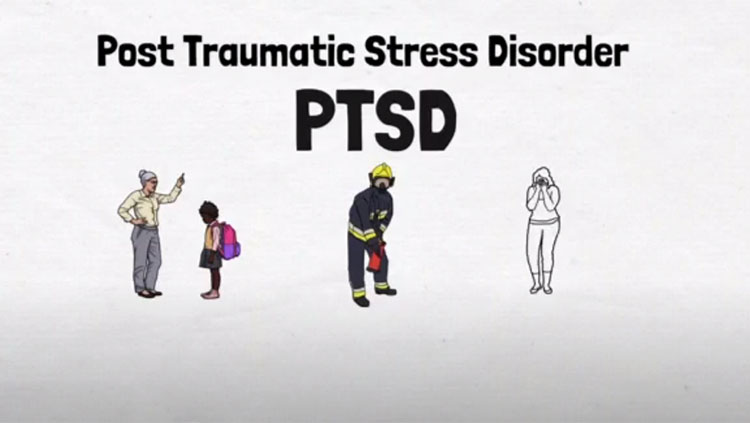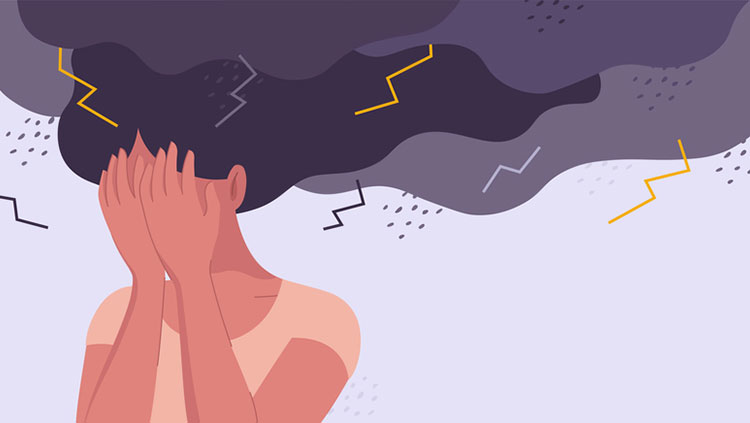The Cognitive Neuroscience in Mindfulness Meditation
- Published4 Jan 2024
- Source BrainFacts/SfN
Meditation is an ancient practice rooted in Buddhist traditions. While meditating, people focus on a single aspect — such as breathing — without judgment. Cognitive neuroscientists have found, for novice meditators, meditation can increase activation in the prefrontal cortex: a brain area involved in functions like planning, working memory, and inhibitory control. However, experienced meditators tend to show decreased activation in this region. This hints at the long-held belief that mediation could help people meet some of their challenges from anxiety, depression, or other mental health issues and more openly accept their thoughts and experiences over time and practice.
This is a video from the 2023 Brain Awareness Video Contest.
Created by Xuran Fu.
CONTENT PROVIDED BY
BrainFacts/SfN
Transcript
With a rising risk of emotional disorders like depression and anxiety, people today are more desperate to find a way to regulate their mood against constant stress, to find an anchor to keep the mind at peace.
In western countries, more and more people are turning to an Asian Eastern practice originated from Buddhist traditions: mindfulness meditation.
Mindfulness is defined as being aware of the present moment without judgment. If you're unfamiliar and want to get a taste, just try to focus on something you can feel right now. Maybe it's just the feeling of air moving in and out of your lungs as you breathe. Do not judge whether it's good or bad. Just be aware. Congratulations. Now you can meditate.
In this video, we will look into how cognitive neuroscientists explain the effect of mindfulness on emotions by studying changes in meditator brains. Scientists found that meditation reduced negative emotions and improved positive moves.
In one study, people who have never practiced meditation were taught how to meditate and practice for eight weeks. Researchers then use functional magnetic resonance imaging to look at changes in their brain activities when they see scary images like a snake during a task and see emotional response in the brain. The results showed that compared to the control group who only read novels together, those who meditated showed significantly higher activation in dorsal lateral prefrontal cortex. This area of the brain is involved in exerting control over other brain regions, including emotional areas like the amygdala. This suggested that meditators learn to have more control over their emotions to avoid being distracted from other tasks.
However, research also suggested that the brain of experienced meditators may regulate emotions in a different way from a novice. Their brains even show a decrease in prefrontal activation in emotional experiences. This might mean that rather than controlling and suppressing one emotion with effort, expert meditators are more likely to accept and embrace whatever experience with an open mind.
This peaceful state might be related to their altered self-awareness even when they were not meditating. Many studies found reduced activity in the default mode network of the brain in expert meditators, this network was suggested to associate with when thinking in your mind, when you're not focused on other tasks. These thoughts are usually self-referential, like, why did I say that? Or where should I go tomorrow? These thoughts are crucial in strengthening the important existence of yourself by constantly reminding you to self-identify with your goals, your needs, and your past.
While self-taught quiet down, meditation masters also have less strong beliefs of the importance of self. Therefore, they place nonjudgmental attention over their feelings without necessarily identify with them as a truthful state about themselves. Rather, feelings are floating phenomenon that comes and goes. Although we know that mindfulness helps with emotion regulation, this research into why and how is still in the early stage.
Due to difficulty in research methods, it is unclear whether meditation has special effects or just people are happier when they can focus their attention better, which could be replaced by other attention training. Either way, mindfulness is an easy and effective practice that could be done whenever and wherever you want to make some space between yourself and the stressful feelings.
Also In Mental Health
Trending
Popular articles on BrainFacts.org

















